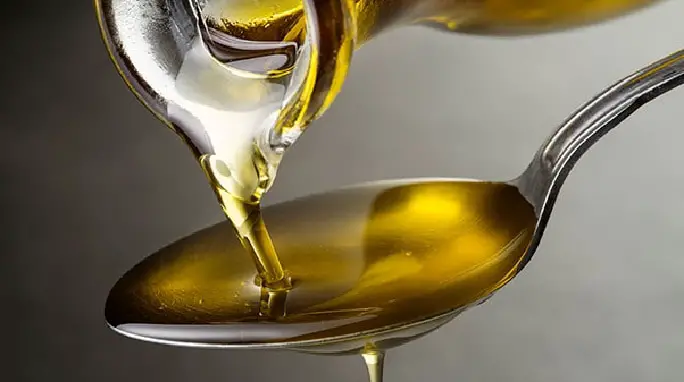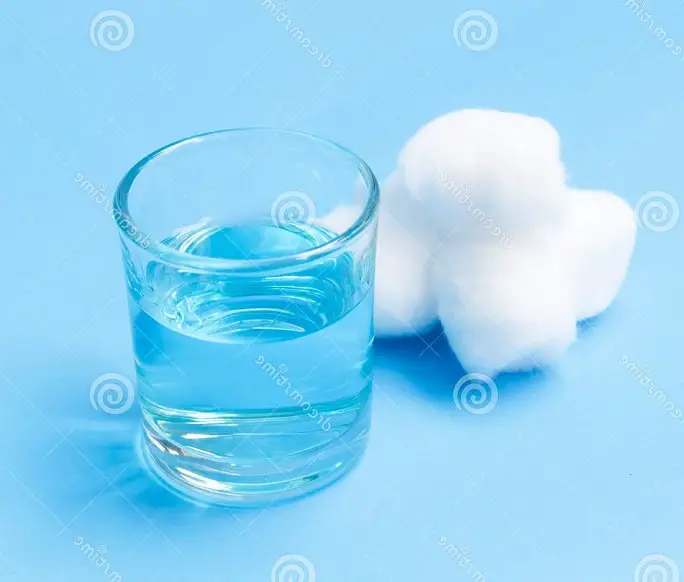It is not uncommon for people to remove their glasses, or use a lens cleaner to remove some of the dirt and grime on lenses. Sometimes though, there are more stubborn stains that just don’t seem to want to come off. If you’re looking for a quick way to remove gorilla glue from eyeglass lens without damaging your lenses, this article will help!
- Steps to Remove Gorilla Glue from Eyeglass Lens
- 1. Remove the lens from your eyeglasses.
- 2. Put a small amount of cooking oil on the glue and let it sit for 10-15 minutes.
- 3. Scrub off the excess glue with an old toothbrush or cotton swab.
- 4. If there is remaining residue, try some other methods
- 5. Rinse thoroughly with water to remove any soap residue left behind
- 6. Let dry overnight before wearing again!
- Some tips to protect your eyeglass lens from glue and other stains
- 1. Clean your glasses with a microfiber cloth or eyeglass cleaner.
- 2. Apply a thin layer of glue-proof coat to the lens and allow it to dry before adding any other layers.
- 3. Use an anti-glare coating on the inside of your lens for those sunny days when you need extra help seeing clearly .
- 4. Store them in their case when they're not being worn so that they don't get scratched by anything else in your bag or pocket.
- Some final words
- Frequently Asked Questions
Steps to Remove Gorilla Glue from Eyeglass Lens
1. Remove the lens from your eyeglasses.
Without this step, you risk getting the glue on your lenses, which can cause damage.
When looking to remove gorilla glue from eyeglass lens it is important not to use any harsh chemicals or solvents that could further damage the materials of your glasses themselves. It will take a little time and patience but isn’t impossible – just follow these steps!
2. Put a small amount of cooking oil on the glue and let it sit for 10-15 minutes.

You can use olive or vegetable oils for this step, as they are less likely than other types of cooking oils to cause damage if not fully removed.
- Using a small amount will ensure that it does not drip off and onto the lenses themselves.
- This is important because the oil will remove the glue, but is also a great way to remove fingerprints or other stains on your lens.
3. Scrub off the excess glue with an old toothbrush or cotton swab.
Using an old toothbrush or cotton swab will ensure that you remove any excess oil, but it will also remove the bulk of the glue.
If there is still some residue on your lens after this step, repeat Step One and Two until all signs of glue are gone from your glasses!
4. If there is remaining residue, try some other methods
- Dishwashing liquid: Apply a small amount of dishwashing liquid to the glue. Let it sit for a few minutes and then remove with your toothbrush or cotton swab.
- Isopropyl Alcohol: Apply the alcohol to a paper towel or cotton swab and rub in small circles. Once all residue is removed, remove any excess rubbing alcohol with your toothbrush or cotton swab until it is no longer damp.
- Rubbing Alcohol: Dampen a cotton swab or paper towel in rubbing alcohol and let stand for about five seconds before wiping the surface clean. Make sure that no residue is left, as it could cause your lenses to fog up!
- Hairspray: Spray some hairspray onto the affected area and remove with a toothbrush or cotton swab. Repeat until all residue is gone from your glasses!

5. Rinse thoroughly with water to remove any soap residue left behind
Once you remove the glue from your glasses, it is important to remove any soap residue left behind by rinsing thoroughly with water. This will prevent anything from getting stuck between your lenses and causing them to fog up.
You should also rinse everything that was used during this process before putting it back on your glasses!
6. Let dry overnight before wearing again!
If you remove the glasses before they are completely dry, it could cause more stains!
This is important because if moisture collects between your lenses or on them, this can cause damage to your eyeglasses.
Some tips to protect your eyeglass lens from glue and other stains
1. Clean your glasses with a microfiber cloth or eyeglass cleaner.
Using a rough cloth to clean glasses is a surefire way to remove the anti-reflective coating from your glasses or cause them to scratch!
Using a microfiber cloth will remove any dirt, grime, and fingerprints without causing damage. Your lenses should always be clean before putting on sunglasses as well – just another reason why having multiple pairs of eyeglasses is so great!
Be careful not to use too much cleaner as this can cause streaks that are more noticeable than smudges or stains left behind by dust particles.
If you don’t have an eyeglass cleaning solution available, using some dishwashing liquid diluted in waterworks wonders for removing those stubborn marks from your lenses with ease!
2. Apply a thin layer of glue-proof coat to the lens and allow it to dry before adding any other layers.
Adding multiple layers of glue-proof coat can remove the anti-reflective coating from your glasses.
This is important because that means it will no longer be able to remove glare and protect you against harmful UV rays!
If applying more than one layer, make sure they are dry before adding any additional layers for best results.
Using a hairdryer on low heat after each application works wonders for drying these coats quickly with minimal damage to your eyeglasses.
3. Use an anti-glare coating on the inside of your lens for those sunny days when you need extra help seeing clearly .
This is a must for anyone who spends lots of time outdoors or in sunny areas.
Not only does this help remove the glare, but it can also protect your eyes from harmful UV rays that cause damage to your retinas and hinder vision over time!
Using an anti-glare coating on the inside of your glasses will not remove any of their protective qualities against debris or smudges either – making them the perfect solution for everyday use if you want better clarity while sunbathing at the beach!
These coatings should be applied sparingly and usually require anywhere between one and three days to dry completely before they are safe to wear again depending on what brand you buy/use.
4. Store them in their case when they’re not being worn so that they don’t get scratched by anything else in your bag or pocket.
If you remove your glasses and set them down somewhere, they could get scratched!
Storing them in a case when you’re not wearing them is the best way to keep these lenses scratch-free.
Make sure that the case is clean before placing it back on or even near your glasses as well – this will prevent any unnecessary scuffs from happening while removing dirt particles lurking inside of cases after long periods without use.
Some final words
The steps above are all you need for removing gorilla glue from eyeglass lenses! Best of luck in not having any issues with this task again. Remember that it’s important to follow these steps whenever you want t to remove gorilla glue from eyeglass lens because it can damage your glasses even more than the dirt and grime!
I hope that by now you know how to remove gorilla glue from eyeglass lenses without damaging them.
Frequently Asked Questions
How do you remove super glue from glasses with toothpaste?
Use toothpaste or olive oil to form a thick paste and coat the surface of the superglue, allowing it to dry for 30 minutes. Rinse and repeat if necessary.
You should probably avoid this at all costs because your glasses will not stay clean during or after this process.
How do you get super glue off plastic eyeglasses?
There are a few approaches to removing super glue. One is to use Vaseline or olive oil, which causes the glue to soften and can be easily peeled off of the sunglasses. Another way is applying hair straightener on first for 5 minutes, then using normal soap or alcohol on first until all the compound has been removed, followed by nail polish remover on second for ten minutes.
An extremely effective technique is microwaving excess adhesive for 30 seconds at a time until it’s no longer sticky – it can usually be immediately peeled away! While this method doesn’t work with some hard plastics, some people have found that heating plastic sunglasses in this way has actually made them more durable.
Does toothpaste remove super glue?
No.
Toothpaste is made of sodium lauryl sulfate and other additives that are too large for most molecules of super glue to dissolve in. It is likely that you’ll require a solvent such as acetone, methyl ethyl ketone, or xylene to dissolve the glue. This can be done by adding them directly to the super glued material and letting the mixture soak for 10-20 minutes before rubbing it until it’s loose and liquid. You may also need to scrub with a toothbrush. As always, consult an expert before damaging any object for this purpose.
Can vinegar remove super glue?
The answer to this question is not really qualitative or exact, for many people who have tried it found that vinegar did not work at all. However, if you need an adhesive remover, there are other products on the market which are specifically designed for this purpose.
The reason vinegar doesn’t effectively remove super glue has to do with its chemistry. The acetic acid in vinegar reacts chemically with polymers in many plastics including super glue’s backing plastic film. But the acetic acid only attacks PPAs (polyacrylic acids) in superglue because they are compatible with one another at a molecular level whereas PVA (polyvinyl alcohol), the main polymer in most other adhesives, do not react well with them
